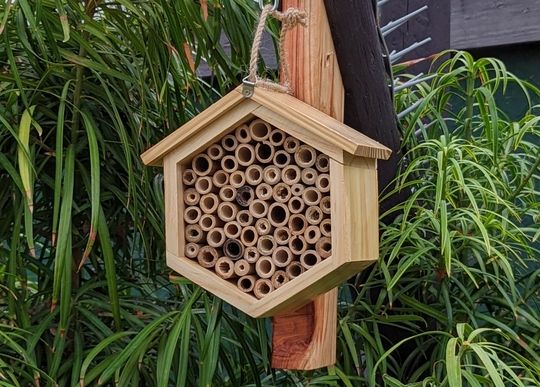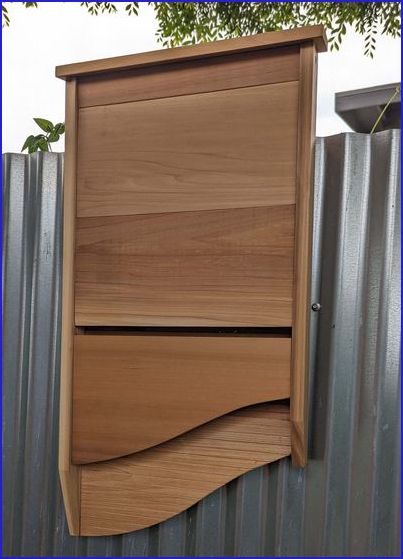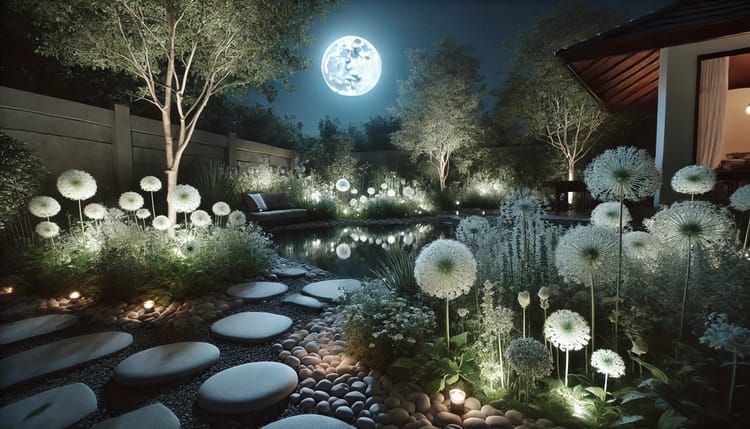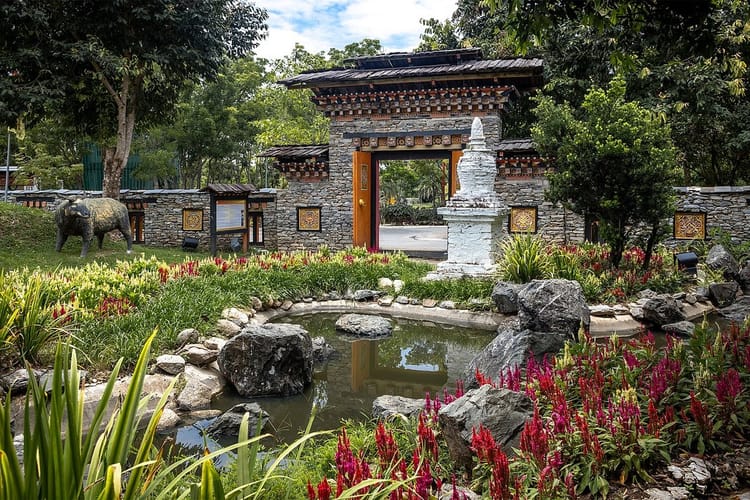Bee Hotels and Bat BnBs


In this blog, we've talked about ways to create natural gardens to encourage wildlife visitors. Some wild creatures are in serious trouble due to loss of habitat, but there are interventions we can use as part of designing a garden to help them. Bees and Bats need our help, and we can do this quite easily in our own gardens.
Bees
Wild Bees are in decline. A study by the Center for Biological Diversity found that 24% of North American native bees are imperiled, and population declines are occurring in 52% of native bees. In Europe, a similar study by the IUCN (International Union for Conservation of Nature) finds that almost 1 in 10 species of wild bees are threatened with extinction, and over 25% of Bumblebee species are similarly threatened. Wild bees are usually solitary in nature, unlike the better known honey bees. This means that we can create habitats in our own gardens to support these bees without having to worry about swarms of bees outside the front door. Solitary bees either live in the ground, or in hollow wood and stone cavities. For ground dwelling bees, providing some areas in your garden that are kept free from planting and either maintained as bare soil or covered with a lightweight bark mulch will suffice. If you have sandy soil, this is the preferred soil texture for these bees to dig into.
Bee Hotels are a good way to create safe places for bees to make a home where they prefer to use hollow wood. Bee Hotels can be made with bamboo or drilled holes in natural wood. You can build your own or buy one from garden supply retailers. A well-designed bee hotel can be just as ornamental as it is utilitarian.

Another habit of native bees is that they will feed on one particular plant, so you should research the plants that support wild bees in your areas and plant these in your garden. If you have already spotted wild bees in your garden, pay attention to the flowers they feed from and plant more or continue to maintain them in your landscape. Once you have identified their preferred plants, try to maintain their planting in drifts, where they are concentrated in one area, rather than scattered around your garden.
Just like honey bees, solitary bees are pollinators that will help your garden flourish. Making bees feel more welcome in your garden will increase crop yields for edible gardeners. Globally, bees provide crop pollination for commercial agriculture worth $160 billion a year.
Bats
Bats are also suffering from loss of habitats, and it is estimated that more than half of the 154 known bat species across North America are at risk of severe population decline in the next 15 years. Bat conservationists are making a similar appeal to Bee conservationists to encourage homeowners to create roosting habitats for bats in their home gardens.
Bats are a beneficial animal for your garden, as they can help with pest control. Bats are one of the best natural defenses against mosquitoes. Bats consume many insects and a single bat can consume 1,200 mosquito sized insects in an hour. In addition to their pest control benefit, they are pollinators, with over 500 plants that rely on bats for their pollination.
We can help bats by placing Bat-boxes for them to use as roosts. If you have a tall tree or a high roof, a bat box can be installed as a roosting spot. Alternatively, bat boxes can be placed on long wooden posts. BatBnB is a well-regarded supplier of Bat-boxes for gardeners in North America. I recently installed one in a garden in Los Angeles, and am very impressed with the quality and stylish look of the box.

As you can see from the examples in this post, bat houses and bee hotels can be stylish components of your garden, while also supporting imperiled wildlife. Think about using these to provide extra habitat for threatened creatures.





